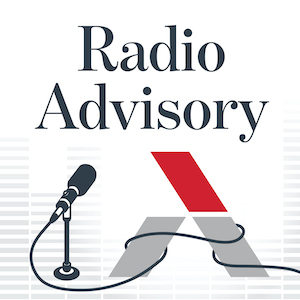Auto logout in seconds.
Continue LogoutWriting for the Washington Post, Jon Gluck, the editorial director of special projects at Medium, explains how Covid-19 fatigue has led more people to eschew pandemic safety precautions—a move that puts the most vulnerable populations at risk.
Radio Advisory episode: Omicron—what it means for health care policy
Pandemic safety precautions are still needed for the most vulnerable
Even as omicron spreads at a "record-setting pace" across the country, some pandemic safety protocols are being loosened, and fewer people are following precautions such as masking, Gluck writes.
For example, CDC recently reduced its isolation guidelines for people who test positive for Covid-19 from 10 days to five days. According to Gluck, this decision "seemed more motivated by political and economic concerns than safety."
"Even as the [coronavirus] is spreading at an unprecedented rate, we're doing less to combat it," Gluck writes. "That's a dangerous combination, especially for the vulnerable."
Although healthy people, especially those who are vaccinated, may be tempted to "let down their guard" when it comes to omicron, which is seemingly milder at the individual level, the same cannot be said for more vulnerable populations, such as the immunocompromised, Gluck writes.
Gluck, who has a rare bone marrow cancer called multiple myeloma, is one of 10 million Americans who are significantly immunocompromised—making him more vulnerable to Covid-19.
Although he has been vaccinated and received a booster shot, his body has only been able to produce a limited level of antibodies, he writes. According to several studies, those who are immunocompromised are less likely to produce an antibody response after being vaccinated, even after an additional shot is given.
"This has forced many of us to take more precautions since the beginning, and worry more about our health and safety than others," Gluck writes. According to Gluck, he and his family recently decided to wear masks in their own home since his son attends in-person school where many students have contracted Covid-19.
At this point in the pandemic, Gluck acknowledges that many people are sick and tired of following pandemic safety precautions, but he argues that most of these measures—such as masks, social distancing, and frequent testing—are "no-brainers" and "minor nuisances, involving negligible disruption and minimal risk."
He also underscores the benefits of vaccination, noting that the shots have been safely and effectively administered to hundreds of millions of people around the world.
"If the benefit is potentially saving the lives of millions of vulnerable people, and who knows how many in general, then the cost [of continuing to follow safety precautions] is clearly worth it," Gluck writes.
And while Gluck acknowledges how almost two years into the pandemic, "everyone is sick and tired of it, and justifiably so." But, he says, "[W]e may be done with Covid, but Covid isn't done with us. Until it is, our choice is to follow the rules or put everyone, especially the most defenseless among us, at increased, and undue risk." (Gluck, Washington Post, 1/17)
Listen to the recent episode
The omicron variant is continuing to spread rapidly throughout the United States, leading to record numbers of new Covid-19 cases in many areas. In this episode, Christopher Kerns sits down with Advisory Board's Pam Divack to talk about the health care industry implications of the omicron variant, including what the political and policy responses to the variant mean for the health care world.
Don't miss out on the latest Advisory Board insights
Create your free account to access 1 resource, including the latest research and webinars.
Want access without creating an account?
You have 1 free members-only resource remaining this month.
1 free members-only resources remaining
1 free members-only resources remaining
You've reached your limit of free insights
Become a member to access all of Advisory Board's resources, events, and experts
Never miss out on the latest innovative health care content tailored to you.
Benefits include:
You've reached your limit of free insights
Become a member to access all of Advisory Board's resources, events, and experts
Never miss out on the latest innovative health care content tailored to you.
Benefits include:
This content is available through your Curated Research partnership with Advisory Board. Click on ‘view this resource’ to read the full piece
Email ask@advisory.com to learn more
Click on ‘Become a Member’ to learn about the benefits of a Full-Access partnership with Advisory Board
Never miss out on the latest innovative health care content tailored to you.
Benefits Include:
This is for members only. Learn more.
Click on ‘Become a Member’ to learn about the benefits of a Full-Access partnership with Advisory Board
Never miss out on the latest innovative health care content tailored to you.

